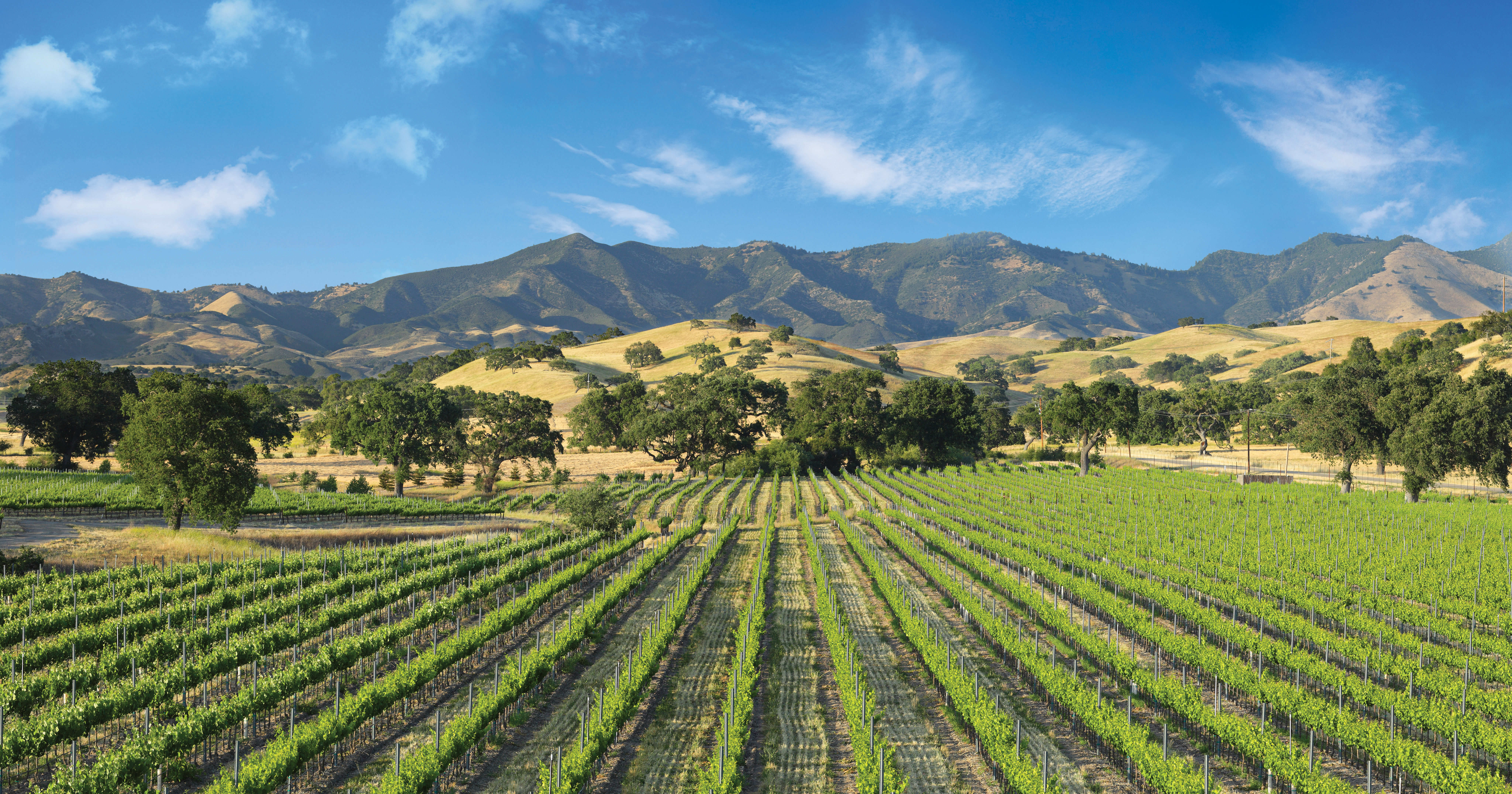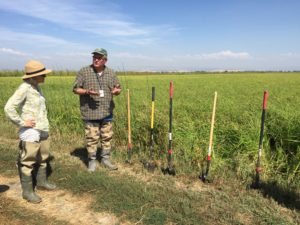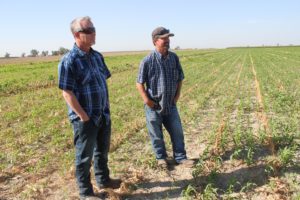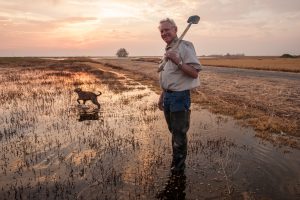
When it comes to keeping California leading in conservation, you may be surprised to learn that landowners are key front-line defenders of the environment. Over 50% of all land in California is privately owned, and how people manage this land has a dramatic effect on our environment, from combatting climate change, to boosting clean air and water, to protecting wildlife.
Leopold Conservation Award
Given in honor of renowned conservationist Aldo Leopold, considered by many the father of wildlife conservation and wilderness protection in the U.S., the Leopold Conservation Award inspires other landowners by example and provides a visible forum where farmers, ranchers and other private landowners are recognized as conservation leaders. Award co-sponsors Sand County Foundation, the California Farm Bureau Federation and Sustainable Conservation are pleased to be able to highlight three more stellar finalists this year – the statewide award’s 11th year. Congratulations, all!

Bryce Lundberg demonstrates what it takes to keep weeds at bay while growing organic rice.
Located in Richvale (Butte Co.) and established in 1937, Lundberg Family Farms has a long history of pioneering conservation efforts, including their iconic organic rice farming. They boast near-zero waste, an innovative duck egg collection program that’s reared and reintroduced over 30,000 ducks back into the wild, rice field habitat for migratory birds along the Pacific Flyway and a no rice straw burning policy that’s been helping boost air quality since the 1960s. They’re active in the community as well, inviting environmentalists and ag groups onto their property to work with soil health, monitor threatened species and advance organic rice farming.

Brothers Donny and Andy Rollins use low- and no-till methods to boost air quality.
Brothers Donny and Andy Rollin are third-generation dairy farmers in Riverdale (Fresno Co.) on their 2,000 cow dairy. They’ve built all sorts of innovation into their operations over the years, from conserving water through multiple uses across the farm before it irrigates crops to installing drip irrigation systems in their almond orchards and silage corn fields that’ve helped them save tens of millions of gallons of water each year. When it comes to the crops they grow to feed their cows, Andy and Donny also use innovative feed crop storage and are California conservation tillage pioneers, a farming technique that leaves crop stubble behind on the soil to reduce soil compaction and dust pollution while helping their soils retain water and nutrients. Rollin Valley Farms utilizes compost, made from on-site cow waste, to grow their feed crops, and sells their manure solids to nearby farms as an organic soil amendment.

Jeff Thomson established a wetland with local and state partners to provide critical habitat. Photo: Paolo Vescia
Jeff Thomson is a fifth-generation farmer near Bakersfield (Kern Co.) who grows a variety of annual vegetable crops, including watermelons, onions, potatoes and carrots. Thomson perfected a suite of notable conservation approaches to better steward the soil, water and wildlife both on and off his land. His use of drip irrigation and soil sensors has reduced water use on a number of his crops by up to 60%. To benefit a variety of waterfowl, including imperiled species, Thomson established an 850-acre wetland with help from colleagues and in partnership with the U.S. Fish and Wildlife Service and California Department of Fish and Wildlife.
The 2017 California Leopold Conservation Award will be presented in December at the California Farm Bureau Federation’s Annual Meeting. The award recipient will receive $10,000 and a crystal depicting Aldo Leopold.
The California Leopold Conservation Award is made possible thanks to generous contributions from The Harvey L. & Maud S. Sorenson Foundation, The Nature Conservancy, Environmental Defense Fund, American AgCredit, DuPont Pioneer and The Mosaic Company.
